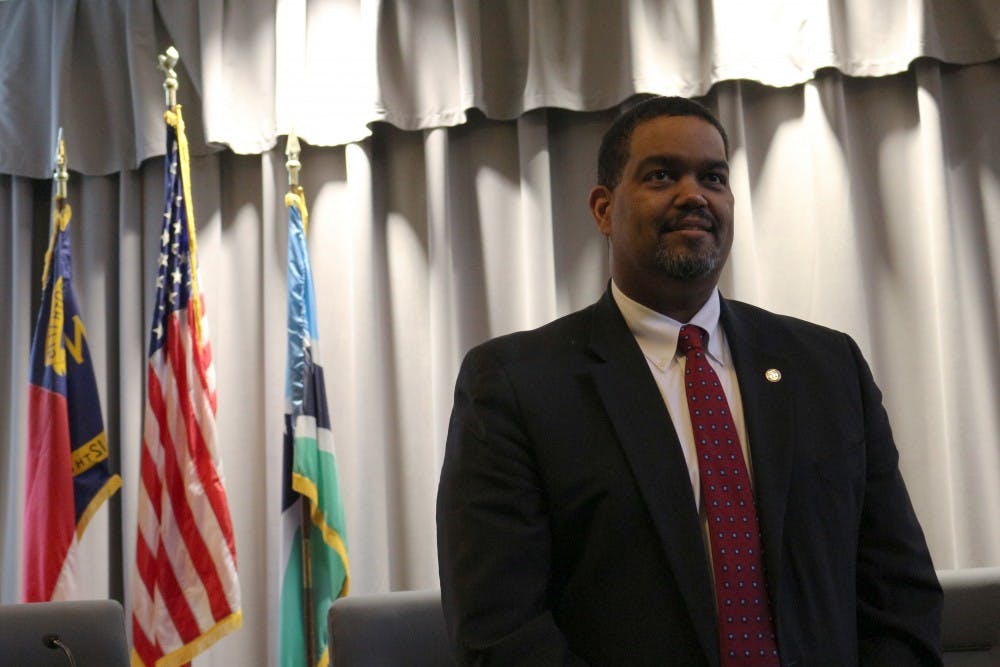Maurice Jones was appointed as Chapel Hill's newest town manager in July 2017 and began in August. Prior to joining the Town of Chapel Hill staff, he was the town manager of Charlottesville, Va., notably during the protests of August 2017.
The Daily Tar Heel sat down with him on Monday for the first time to talk to him about his transition and goals for the Town.
The Daily Tar Heel: How has it been transitioning to another university town? How does it compare to Charlottesville?
Maurice Jones: You know, very similar, many more similarities than differences, quite frankly. You know, there are a lot of folks who care deeply about this community. We’ve had our fair share of protests over the course of the last six months, and so getting a chance to watch folks interact and prepare for that is very similar to some of the things we did in Charlottesville, as well, as we prepared for events. I really enjoy college towns. It’s one of the reasons I was attracted to this job in the first place, because of the energy that you have in college towns, and the focus that you have on really important topics and issues. We certainly have that here, whether it's issues related to climate change or issues related to racial justice, alternative transportation.
DTH: What are some of your visions for the future of Chapel Hill and the other issues in general?
MJ: Obviously alternative transportation is really important for us. There’s been a lot of discussion recently over Bus Rapid Transit, especially on this corridor here on 86 and Martin Luther King Boulevard. The Council has had some discussions recently about what more we could do when it comes to protecting our environment and encouraging others to do that within the town. We’re in the early phases of developing a climate action plan that we hope to develop not only as a town but also regionally.
DTH: In the announcement that was first made saying you got appointed to the position, Mayor Pam Hemminger specifically cited your experience with the Charlottesville protests that happened in 2017 as a reason why they were excited to bring you on. Are you approaching the events around Silent Sam differently than how you approached the Charlottesville protests, or is it more informing how you’re behaving?
MJ: I would say we’ve approached it a little bit differently because it’s not on the same scale as what we saw in August of 2017. I mean with that, there were thousands of people who were in our streets in Charlottesville and many of whom were not there for good reasons, but they wanted to engage in an activity in which folks would become violent, physical with another. We haven’t seen that nearly as much here, a much smaller scale with the protests, like on Saturday, there were about 60 people altogether who were involved, and they just came to voice their opinions.
And so, even though it got tense at times, there didn’t seem the intention that they were there to hurt anybody else. So they’re two kind of different experiences, but there are things we can take from Charlottesville and other places around the country that have had this type of violent interactions between some of these groups. We can take that and learn from that here in Chapel Hill as we’re applying it to preparing for these types of events, but thankfully we’ve kind of known going in that these weren’t going to be violent events.





